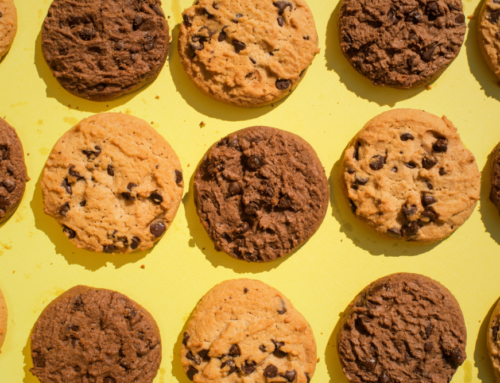I’m a fast eater. Always have been, as best as I can remember. So I generally snap to attention whenever I come across a study on eating speed, mindless eating, or whatnot. I’ve even acquired two books on the subject in the last year, although I haven’t had time to actually read them cover-to-cover yet.*
Accordingly, I was amused a few weeks ago to, in the same day, read about two studies with kind of contradictory results.
The first, a study from the Netherlands, fed a group of people the exact same four-course meal twice (on different days). For one of the meals, the courses were served back-to-back, and all food was eaten in 30 minutes. For the other, the courses were “staggered,” with 20+ minute breaks between courses. So, one meal was leisurely, the other was not, but calories were the same.
Two-and-a-half hours after the beginning of the meal, the diners were asked about their feelings of hunger and satiety. The diners who had enjoyed the leisurely, drawn out meal reported feeling less hungry and more satisfied. Their blood levels of the hormone ghrelin, which increases with hunger and may stimulate appetite, confirmed those feelings.
So what happened when, right after being asked how hungry they were, the diners were offered a tray of desserts, peanuts, chips, etc.? They ate just as much, regardless whether they had eaten a fast meal (and were hungrier) or the slow meal (and were less hungry). The translation: Leisurely meals don’t curb snacking.
OK, then. So about 15 minutes after reading that article, an e-newsletter from Harvard Medical School pops up in my inbox. Among the reading goodness was an article on mindful eating, giving an overview of some of the research, and plugging the new Buddhism-meets-science book “Mindful Eating, Mindful Life” (which you know will end up on my bookshelf). Mindful eating is generally about eating slowly and thoughtfully, and the article (here) is definitely worth checking out if you’re interested.
In my opinion, and personal experience, being a fast eater isn’t necessarily a problem if you have other means of controlling your food intake besides just waiting to feel full (or non-hungry). I have a pretty good sense of reasonable portion sizes, so at home I serve myself the amount that I know I should eat, and when it’s gone, it’s gone. Where things get dicey is in situations where food is served in huge portions (restaurants, other people’s homes) or where food is everywhere in abundance (buffets, parties, holiday meals). In those situations, I am more likely to try to eat slowly. I also make it a point to eat very mindfully when I’m enjoying a decadent treat, like a rich dessert (since those moments don’t come very often, I like to get maximum pleasure out of them).
If you are trying to lose weight, it’s definitely worth looking at all of your eating patterns. If you find that you end up eating too much because you inhale your food, or have trouble being satisfied with what you do eat because you’re so distracted while eating that you barely noticed you ate, then slowing down and paying attention might do you a world of good.
* I did, however, have time to watch all of season 6 of “Weeds” on DVD over the last two days. That’s only six hours in total, so it sounds worse than it really was. A girl’s got to celebrate the beginning of a week-and-a-half of no studying somehow!







